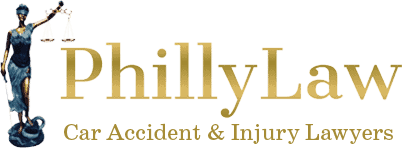What Is The Process of a Personal Injury Claim in Pennsylvania?
After an accident where you are injured, the first step should always be to seek medical attention, regardless of the severity of your injuries. Following medical treatment, document everything related to the accident. Additionally, make sure you contact your insurance company about the accident, as this notification is often a requirement of your policy. Lastly, consider an initial consultation with an experienced Philadelphia personal injury attorney at PhillyLaw to learn more about your options.
Understand Whether Your Injury Qualifies for a Personal Injury Claim
Determining whether an accident qualifies as a personal injury case suitable for a lawsuit hinges on several critical factors. First and foremost, there must be evidence of negligence or failure to act with reasonable care by another party, leading directly to your injury. Additionally, the incident must have resulted in tangible harm, such as physical injury, financial loss, or emotional distress, for which you seek compensation. Not every accident will meet these criteria, so it’s essential to consult with a personal injury attorney to assess the specifics of your situation and understand your legal rights and options.
More specifically, understanding whether your accident constitutes a valid personal injury case primarily hinges on two critical elements: liability and damages. Liability involves proving that someone’s negligence or intentional act caused your injury. This could range from a car accident where another driver was at fault, to an injury at a business where the establishment failed to ensure a safe environment. Damages, on the other hand, refer to the losses you’ve incurred as a result of the injury. These can include medical bills, lost wages, pain and suffering, and other related costs and losses. If you can establish that another party is at fault for your injuries and you have suffered damages as a result, you likely have a personal injury case. Contact the experienced personal injury attorneys at PhillyLaw to ensure that you are able to pursue your personal injury case.
Get Medical Treatment
Seeking medical treatment immediately after sustaining a personal injury is paramount for both your health and any future personal injury case you may wish to pursue. Immediate medical attention facilitates a swift recovery and provides documented evidence of your physical injuries, which is crucial when seeking compensation. Even if the injuries seem minor at the outset, symptoms can escalate over time, making early diagnosis and medical treatments essential. Documenting your injuries and the treatment received creates an indisputable link between the accident and your physical state, strengthening your personal injury claim. Thus, visiting a healthcare professional as soon as possible after an accident is recommended, even if you feel your injuries are not severe.
Document Everything Related to the Accident
Documentation includes photos of the accident scene, your injuries, and any property damage. Collect names and contact information of witnesses, and if applicable, file a police report with a law enforcement officer. These documents and information can significantly strengthen your personal injury claim by providing concrete evidence of the circumstances surrounding your accident.
Contact Your Insurance Company
It’s essential to reach out to your insurance company immediately after an accident, even if you plan to file a personal injury claim against the at-fault party. Prompt notification is often a condition of your insurance policy, and failing to report your accident promptly can lead to complications in coverage for damages and medical expenses. Contacting your insurer early on and speaking with an insurance adjuster allows them to begin the claims process, assess the damage, and potentially cover initial costs related to your injury, which can be crucial before your personal injury claim is settled. Additionally, your insurance company can offer guidance on the steps to follow post-accident and may assist in dealing with the at-fault party’s insurer, streamlining the process and alleviating some of the stress associated with navigating the aftermath of an injury
Contact a Personal Injury Lawyer
Contact the experienced lawyers at PhillyLaw as soon as possible after sustaining an injury due to someone else’s negligence. This urgency is crucial because personal injury claims have time limits, known as statutes of limitations, which vary depending on the type of injury and the state in which the injury occurred. Consulting with an experienced personal injury lawyer early can help ensure that your rights are protected, evidence is preserved, and your claim is filed within the legal deadlines. Additionally, early consultation with a personal injury lawyer can provide you with valuable guidance on how to document your injuries and medical treatment as well as deal with insurance companies, helping to prevent any missteps that could negatively impact your case.
What Will a Personal Injury Lawyer Do First in a Personal Injury Claim?
Upon being hired, most personal injury attorneys’ first step usually involves conducting a comprehensive review of your case. This crucial initial phase is focused on gathering all pertinent information about the incident and the injuries sustained by the accident victims. The personal injury lawyers will meticulously review police reports, medical records, and witness statements to construct a clear narrative of the event. Additionally, your lawyer will assess the legal aspects of the case, determining the liable parties and the extent of damages you have incurred. An experienced personal injury attorney from PhillyLaw will provide a thorough evaluation that not only forms the basis of your legal strategy but also helps in accurately estimating the compensation you might be entitled to.
Does a Personal Injury Claim Always Involve a Lawsuit?
No. Contrary to common belief, pursuing a claim does not always necessitate filing a lawsuit. In many cases, claims can be successfully resolved through negotiation with the at-fault party’s insurance company. This process involves the injured party’s lawyer presenting evidence of the defendant’s liability and the extent of the damages to negotiate a fair settlement without going to court. Settlement negotiations can be an effective way to secure compensation for injuries, typically quicker and with fewer expenses than a trial. Many personal injury lawyers can obtain a favorable result without filing a lawsuit and compensate their clients with a personal injury settlement. However, if a satisfactory agreement cannot be reached through these discussions, filing a lawsuit may then become the necessary next step to seek the compensation deserved.
Filing a Personal Injury Lawsuit
If your claim is not resolved through initial negotiations with the responsible party or their insurance company or if the compensation offered does not adequately cover your damages, you should consider filing a lawsuit to appropriately compensate you. It’s important to file your lawsuit within the statute of limitations for personal injury cases in your state, which usually ranges from one to four years from the date of the incident. Missing this deadline could forfeit your right to sue. Before proceeding, consult with an experienced personal injury attorney at PhillyLaw who can assess the specifics of your case, advise on the best course of action, and help ensure that your lawsuit is filed timely.
What Happens After You File a Personal Injury Lawsuit
Discovery Phase
After filing a personal injury lawsuit, the legal process moves into a phase known as discovery. During discovery, both parties involved in the lawsuit exchange information through a variety of means including depositions, requests for documents like medical bills, and written questions known as interrogatories. This phase allows each side to fully understand the other’s claims and defenses, gather evidence like medical records, and identify witnesses and obtain witness testimony. It’s a crucial period where the groundwork for the trial is laid, and often, it can lead to settlement negotiations if both parties come to see the strengths and weaknesses of their respective positions. The duration of discovery can vary widely depending on the complexity of the case, the amount of evidence to be gathered, and the cooperation level of both parties.
Pre-Trial Phase
After the discovery phase concludes in a personal injury lawsuit, the process may proceed toward a trial, although not every case will end up in court. Before a trial begins, there may be pre-trial motions where either party can request the court to make certain decisions. These motions might include requests to dismiss parts of the case, or to prevent certain evidence from being presented at trial based on legal rules. This phase is critical, as it can significantly influence the course of the lawsuit and potentially lead to a resolution before the trial officially starts.
Trial
If the case continues past pre-trial motions without settlement, it then moves to the trial phase. Here, both parties present their evidence and arguments before a judge or jury, who will make the final decision regarding liability and any compensation to be awarded. The trial phase can be both time-consuming and expensive, which is why many cases are settled before reaching this point.
Post-Trial Motions and Appeals
After a verdict is delivered in a personal injury trial, the losing party has the option to file post-trial motions. These motions can request the trial court to reconsider the decision or to order a new trial, often on the grounds of significant legal errors that could have affected the verdict. If the post-trial motions are unsuccessful, the losing party may decide to appeal the case to a higher court. An appeal is not a new trial but a request for a higher court to review the trial court’s decision for legal errors that could change the outcome of the case. The appeals process can be lengthy and complex, involving strict procedural rules and deadlines. During this time, the awarding of damages may be delayed until the appeal is resolved, which can add to the time it takes for the injured party to receive compensation.
Achieving a Positive Verdict
Securing a positive verdict in a personal injury lawsuit marks a monumental triumph in the arduous legal battle for justice and compensation. This favorable outcome not only validates the injured party’s claims and suffering but also ensures that they are rightfully compensated for their losses, pain, and suffering. A positive verdict can cover various damages, including medical expenses, lost wages, and emotional distress, helping the victim rebuild their life post-incident. Beyond financial compensation, a win in court also serves a critical role in holding the responsible party accountable for their actions, potentially preventing future negligence. While the legal process can be long and challenging, a positive verdict provides a sense of closure and vindication for the injured, affirming that their fight for justice was worth the effort.
PhillyLaw is Committed To Guiding You through the Personal Injury Claim Process to Get a Favorable Result.
Please let the skilled legal team at PhillyLaw, dedicate themselves to fighting for your rights and ensure you receive the justice and compensation you deserve. By guiding you carefully through the process of a personal injury case, our goal is to lift the legal burden from your shoulders, allowing you to focus on recovery. If you or a loved one has been injured or killed as a result of an accident, we encourage you to contact us for a free consultation. Together, we will explore your options and diligently work toward securing the most favorable outcome for your case.

